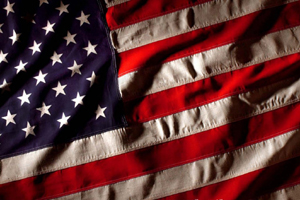NORC: Americans, Venezuelans most proud
By William HarmsNews Office
 | |
When it comes to being proud of their country, people in United States and Venezuela lead the world, according to a new report produced by the National Opinion Research Center.
Among the 33 nations surveyed, the United States was the nation with the leading score in pride over specific accomplishments and Venezuela was the leading nation in the general national pride portion of the survey.
Although the countries have been at odds over a variety of issues, they do share a common trait with most of the top 10 nations in the national pride survey Ð they are both relatively new nations that used to be colonies.
“These countries formed their national identities through conflicts that bound their people together and created a national story that resonates with citizens,” said Tom Smith, Director of the General Social Survey at NORC. Smith co-authored the paper, titled “National Pride in Comparative Perspective: 1995/96 and 2003/2004,” with University researcher and graduate student in Sociology Seokho Kim.
The paper was published in yesterday’s (Wednesday, March 1) edition of the International Journal of Public Opinion Research, and it is based on surveys conducted by the International Social Survey Program, a consortium of survey researchers throughout the world.
Researchers collaborated on the survey to see what changes have developed in national pride over the past decade and also to gauge the impact of globalization on people’s feelings about patriotism.
“The world is primarily organized in nation states: sovereign, geo-political entities organized around one predominant nationality or ethnic group,” Smith said. “National identity is the cohesive force that both holds nation states together and shapes their relationships with the family of nations.”
The researchers found that nations with growing national pride were those that had experienced terrorist attacks on their citizens, such as the United States and Australia. These experiences usually strengthened national solidarity, Smith said.
The researchers asked a series of questions related to general national pride that asked people to what extent they agreed with such statements as, “I would rather be a citizen of my country than any other country in the world,” and “Generally speaking, my country is a better country than most countries.”
A second set of questions asked about national pride in specific areas, such as the nation’s achievements in science and technology, the arts, sports and political influence in the world.
Among the general pride, people in Venezuela had a score of 18.4 (out of a possible 25), while people in the United States had a score of 17.7. Other top leaders in that category were Australia (17.5), Austria (17.4), South Africa (17), Canada (17), Chile (17.1), New Zealand (16.6) and Israel (16.2).
In the domain-specific category, the United States led with a score of 4 followed by Venezuela (3.6), Australia (2.9), Austria (2.4), South Africa (2.7), Canada (2.4), Chile (2.6), the Philippines (2.3) and Israel (2.3).
The countries at the bottom of the list are generally established nations in Europe. “It could be that those nations are experiencing a response to globalism, particularly among young people. Many identify as much as being Europeans as citizens of their own country. In some European nations, the concept of strong patriotism also has negative connotations,” Smith said.
The bottom 10 nations in the survey, beginning with the last, were the eastern portion of Germany, Latvia, Sweden, Slovakia, Poland, the western portion of Germany, Taiwan, France, Switzerland, and the Czech Republic.
The study also found that within the surveyed countries, national pride was generally lower among minority groups, the better-educated and younger adults.
The first survey on national pride was based on surveys taken in 1995 and 1996 in 23 countries. The results were based on national probability samples of adults living in each of the countries.
In the United States, the National Science Foundation and the Smith Richardson Foundation supported the current survey.
![[Chronicle]](/images/sidebar_header_oct06.gif)